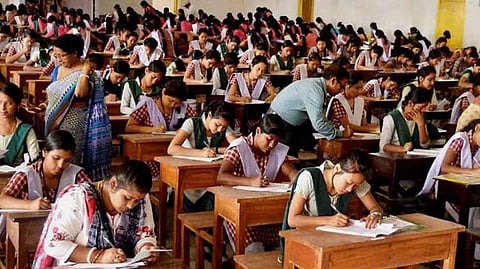“If we teach today’s students as we taught yesterday’s, we rob them of tomorrow.” Although world-renowned educational reformist, John Dewey, made this statement almost a century back, it has stayed relevant to this day. An educational system that equips our children to thrive and flourish in tomorrow’s world remains a distant dream for India.
For most part, our education system is largely dedicated to knowledge assimilation and driven towards scoring high marks in exams. While the focus of our early, primary and higher educational system is largely academic, it freezes out the significance of skill-building to a few technical courses imparted through technical institutes.
It is an unfortunate reality that our children are prepared and encouraged to gain subject expertise at the cost of holistic development. The current education system also does not equip children with the know-how of where or how to apply it. Thus, it is imperative that we focus on how we teach as a reflection of how our children learn and apply their knowledge and skills in the world they will operate in.
Today, the world is changing rapidly. It’s connected, adapting and ever-evolving. It is crucial that our approach to teaching focuses on learnings that will equip our future generation to deal with the opportunities and challenges they are likely to face. According to the PISA report, children in most Indian schools are not at par with the foundational skills of literacy and numeracy, let alone the ‘extracurricular’ knowledge and skills necessary for their all-round development.
The reasons are directly linked to the current gaps in innovative and new-age teaching methods, high pressure to complete one’s annual study content and underdeveloped educational infrastructure with an inflexible teaching framework.
Progressive measures are necessary for both students and teachers. It is critical that our teachers feel motivated and are made to understand how learning can be fun and engaging. The focus needs to shift from delivering syllabus content to the practical application of that content in the real world. Another important aspect that impedes meaningful learning in children is the lack of acknowledgement of a child’s individuality – their likes, dislikes, strengths, aspirations. A ‘one formula for all’ approach is bound to fail in making our children future-ready.
In order to overcome these problems, we need a revolutionary change in the art and science of teaching. It is important that our campuses encourage ‘student-led learning’ versus ‘teacher-led learning’ in order to create socially-empowered young leaders who can voice their ideas freely while advocating for themselves and others to solve the issues that impact the world at large.
For this, our education system needs to become more flexible and less didactic. It must encourage inquiry-based learning and skills such as critical thinking, problem-solving, communication and collaboration, for these are the tools that our children will need to build their collective future.
So how do we do all of this?: The National Education Policy (NEP) is a step in the right direction. It aims at a major overhaul in our legacy education system through vital reforms. Inspired by the UN SDG-4 to ‘ensure inclusive and equitable quality education for all’ NEP promotes a participatory, holistic and inclusive approach in education. It takes into account the fast-changing knowledge landscape as technological and scientific advances meet global concerns such as climate change, overpopulation, pollution and depleting natural resources.
NEP has acknowledged that these problems require a workforce equipped with the know-how, consciousness, and zeal to develop innovative solutions. Thus, our education system must be geared towards creating such a workforce.
While NEP certainly shows a lot of promise, there is a need, at our schools, for an integrated approach between traditional curricula and the life-skills learning agenda. The NEP could evolve into an actionable toolkit to develop an integrated approach across the education continuum.
Quality education is a human right and public good. It enables people to develop all of their attributes and skills to achieve their potential as human beings and contributing members of society. As Ron Lewis said: “Ensuring quality education is one of the most important things we can do for our future generations.” When viewed from this lens, it becomes an engine for creating meaningful change in the world.

